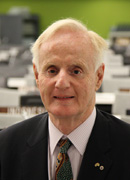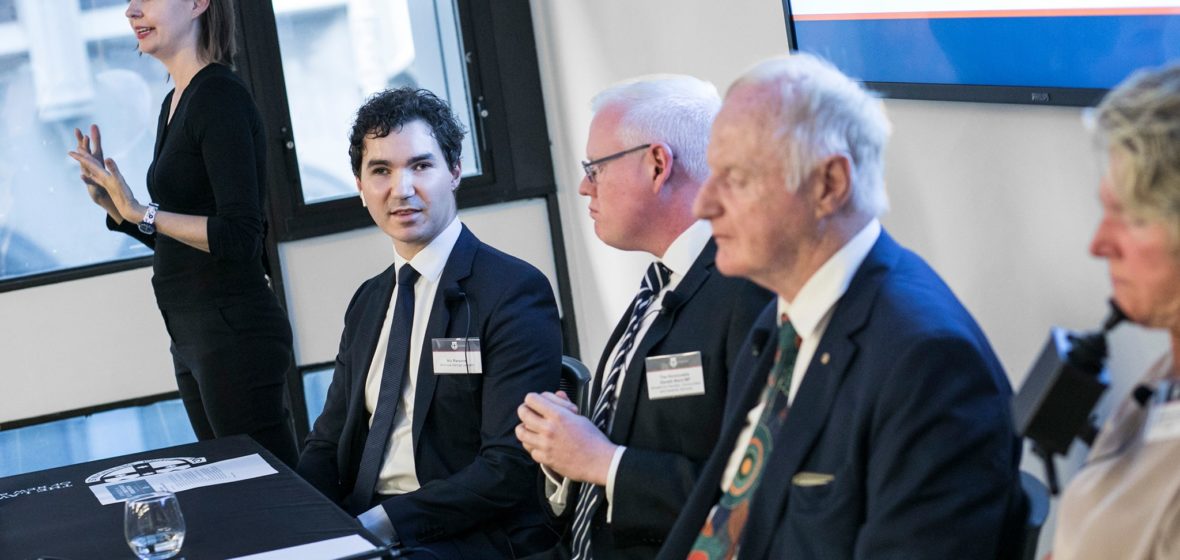“Now with the technology, we persons with disabilities can be very successful lawyers.”
In support of International Day of People with Disability, which was celebrated around the world on 3 December, a panel of experts gathered at the Law Society to examine how to improve accessibility and inclusion for people with disability in the legal profession.
Emeritus Professor Ron McCallum AO, Special Advisor to the Disability Royal Commission and former Dean of the University of Sydney Law School, said that while the law is “opening up” for people with disability, significant challenges remain.
“I think there’s a lack of information in the legal profession about what we disabled people can do, and how we can be employed and what contribution we can make to the firm”, he said.
On the panel with McCallum was Gareth Ward, NSW Minister for Families, Communities and Disability Services, and Rosemary Kayess, Interim Director of the Disability Innovation Institute at the University of NSW, and an elected member of the UN Committee on the Rights of Persons with Disabilities.
Given knowing the law and applying it to facts is in no way inherently beyond the ability of people with physical or sensory disabilities, a theme of the evening was the importance of changing attitudes and overcoming the subtle prejudice of low expectations.
Born with oculocutaneous albinism, Ward recounted how his parents were told by doctors to keep him in the dark and behind closed doors. Teachers warned his parents that he’d never amount to much and, as a result, confounding expectations has a special importance to him.
“Sitting here as the First Minister for Disabilities to actually have a disability, it’s not just exciting, but it’s also an opportunity for me to demonstrate what people, who some will try and frame as having impairment, are actually capable of achieving”, Ward said.
All panellists agreed on the benefit of rapid advances in assistive technology for people with disabilities.
“For those with vision impairment, it’s like night and day”, said McCallum, referring to text-to-speech and screen reading technology.
“For the very few lawyers before computers, they had to get everything read and you couldn’t get through that amount of work. Now with the technology, we persons with disabilities can be very successful lawyers.”
But the panel cautioned that with the growing importance of technology to the practice of law, designers must take people with disabilities into consideration at the outset, rather than as an afterthought.
 Emeritus Professor Ron McCallum
Emeritus Professor Ron McCallum
“Retrofitting accessible features [to technology] just makes it more expensive and more time-consuming”, said Ward.
“So the more that you can encourage designers to be involved with accessible technology from the get-go, the better off we’ll all be”.
With technologies such as artificial intelligence and big data, considering accessibility at the design stage is not only important for practitioners with disability.
“The algorithms that inform AI need to be based on the concept that impairment is an inherent factor within the human condition. The algorithms need to span that difference and work with it. Otherwise, people with disability will be left out”, said Kayess.
As with technology, Kayess says law firms need to design their workplaces to be accessible and inclusive from the outset, rather than individualised adjustments for employees with disability.
“Law firms should be ensuring that their office spaces, their workplaces, their procurement mechanisms, are all geared for inclusion, that they start from the premise that disability is one aspect of the human condition and that any employee that comes through that door could need a range of access issues regardless of diagnostic type,” she said.
“They [employees with a disability] shouldn’t have to worry that they can’t access the video conferencing details in the meeting room on level four, because it’s a touch screen. They shouldn’t have to get screen reading software especially put into their computers. Stop putting all the hard work on the person with disability to do and start doing some more generalist inclusive practice”.
If you would like to learn more, Law Society members can view the full webcast of the event here until 31 December 2019.
Story by Nic Parsons and Alison Drayton, members of the Law Society of NSW’s Diversity and Inclusion Committee.




